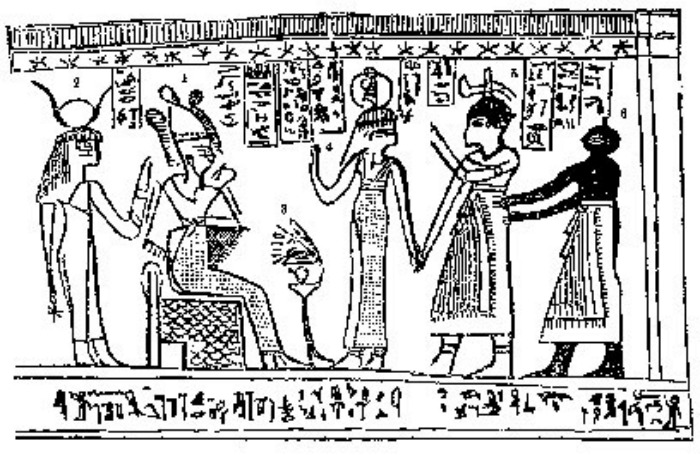Question
Gramps,
If some spirits were able to progress so much in the pre-earth life that all they come to earth for is a body and then die before the age of accountability, why don’t we all just do the same? If it is possible to progress that much without a body? Why doesn’t God allow us to progress that far and then send us to get a body and then return right back? Why is it that others could progress enough before this life but those of us still living couldn’t?
Sam
Answer
Sam,
I think I can truthfully say that many have wondered something like this at various times in their lives. But no one can really answer your specific questions with any certainty. The best we can do is speculate, and we should be careful not to let speculation lead us astray or drag us down. The obvious logistical answer is simple: if no one stayed in mortality long enough to mature to the age where they can marry and have children, where would all these mortal bodies come from? Given the reality of the resurrection, we can’t expect to “reuse” one set of bodies. I expect God could have made bodies for everyone the way he made bodies for Adam and Eve, but it’s safe to assume that wouldn’t best accomplish God’s plan (if it would, he would have done it).
Why don’t we all just get a body and die before the age of accountability? Well, first there are the logistical issues, and next, how would there be an age of accountability if no one ever lived that long? Trying to find a way to make that work seems to lead us in circles or to dead ends. Why doesn’t God allow us all to progress in that fashion? Perhaps it’s less about what God will allow and more about our own capacity and / or desires. Perhaps such progression is actually harder and / or slower.
The fact that so many of us experience mortality past childhood would indicate that at least some of us need more time in mortality to gain experience. Why might some need prolonged mortality and not others? From Abraham 3:19, 21-26, we can suppose that some are more intelligent than others, and likely learned faster. Beyond this, we don’t know how or why some progressed farther before mortality than others (or even that they did, we’re making assumptions here). Perhaps some of us spent more time as spirit children of our Heavenly Father than others, thereby having more time to progress. We know that in mortality each of us has different abilities and interests, we make differing degrees of effort and have differing struggles. It’s probably safe to assume this was also true before this life. And God wants the best for all of his children, not just those who, perhaps, managed to progress farthest before mortality.
Also, we don’t know what the future will be for those who remained in mortality for less than a full lifespan. Perhaps they’ll have to learn mastery of the physical body during the millennium. Perhaps they’re on the other side of the veil now, wishing they could have stayed on earth with their family and friends, and gained experience the way we are privileged to gain experience. We just don’t know.
But there is one thing we know: we are here for more than just “a body”. There is at least one other blessing which all receive, no matter how little time they spend in mortality: a family. Even those who die before the age of accountability get a family. In The Family: A Proclamation to the World, we read:
We, the First Presidency and the Council of the Twelve Apostles of The Church of Jesus Christ of Latter-day Saints, solemnly proclaim that … the family is central to the Creator’s plan for the eternal destiny of His children. …
The divine plan of happiness enables family relationships to be perpetuated beyond the grave. Sacred ordinances and covenants available in holy temples make it possible for … families to be united eternally.
The first commandment that God gave to Adam and Eve pertained to their potential for parenthood as husband and wife. …
The family is ordained of God. … Children are entitled to birth within the bonds of matrimony, and to be reared by a father and a mother who honor marital vows with complete fidelity.
We warn that individuals who … fail to fulfill family responsibilities will one day stand accountable before God. Further, we warn that the disintegration of the family will bring upon individuals, communities, and nations the calamities foretold by ancient and modern prophets.
From this document alone, we understand how crucial the family is in eternity. Were God to have just made all the bodies himself, and put us into them only long enough to take a breath and then die, we would not have had families. All through the scriptures we see commands to marry, to have children, to love one another, to honor parents and spouse, to teach children the gospel. Family is key.
With all of that said, in my experience, this kind of question is most often prompted by trials. One of the ways to gain perspective to help us endure trials, and enjoy mortality, is to understand that mortality is about more than just getting a body, and that trials aren’t there only to see how tough we are – they’re there to help us learn and grow stronger. If you’re experiencing trials, try to view them as Eve did: “And Eve, his wife, heard all these things and was glad, saying: Were it not for our transgression we never should have had seed, and never should have known good and evil, and the joy of our redemption, and the eternal life which God giveth unto all the obedient.” (Moses 5:11). Choose faith and hope. Try to remember all the purposes and blessings of mortality: experience, family, learning, a precious body that will one day be perfect. While the grass may look greener on the other side, this is God’s plan and he knows more than we do, so it behooves us to trust him, to turn to him when we need help getting through the hard parts of life, and to be grateful for the joy we experience here.
Gramps







